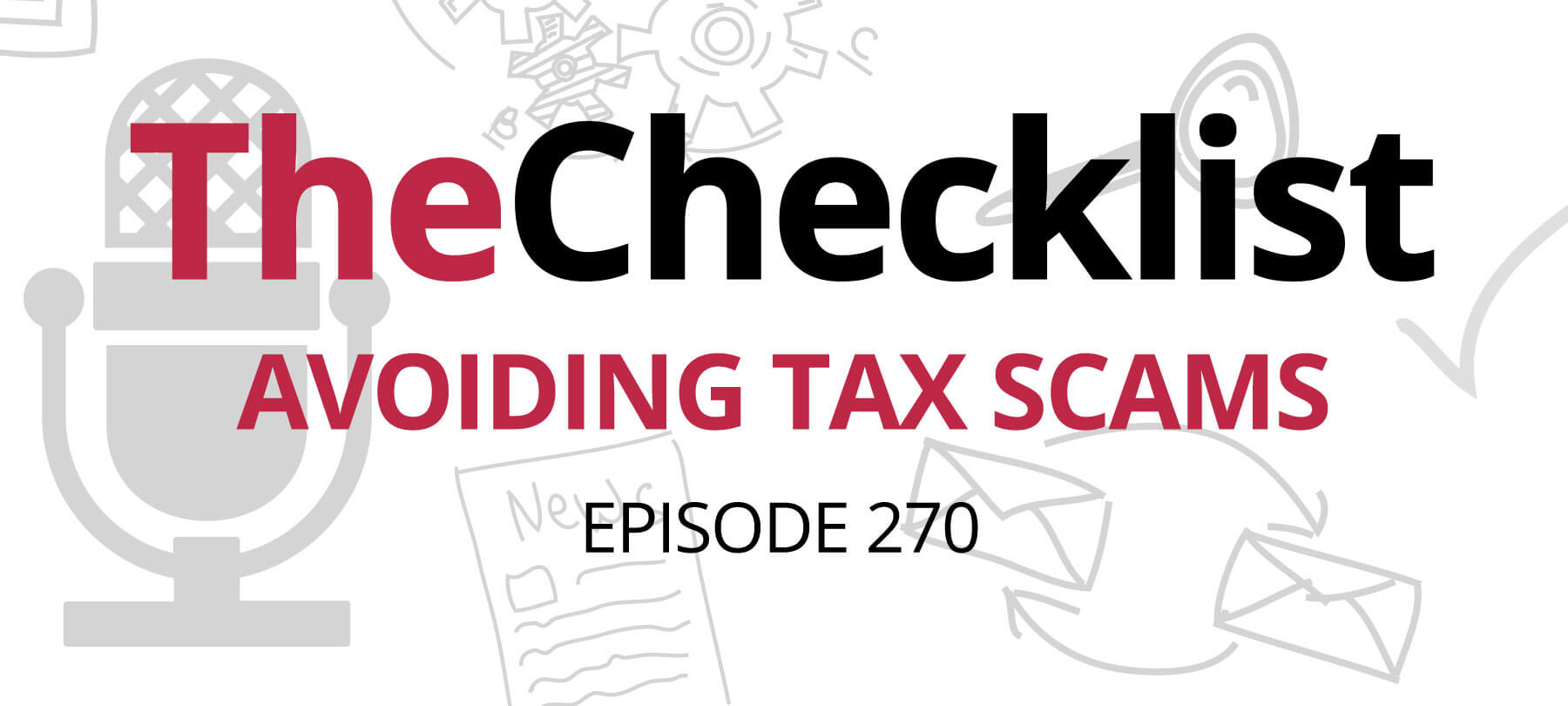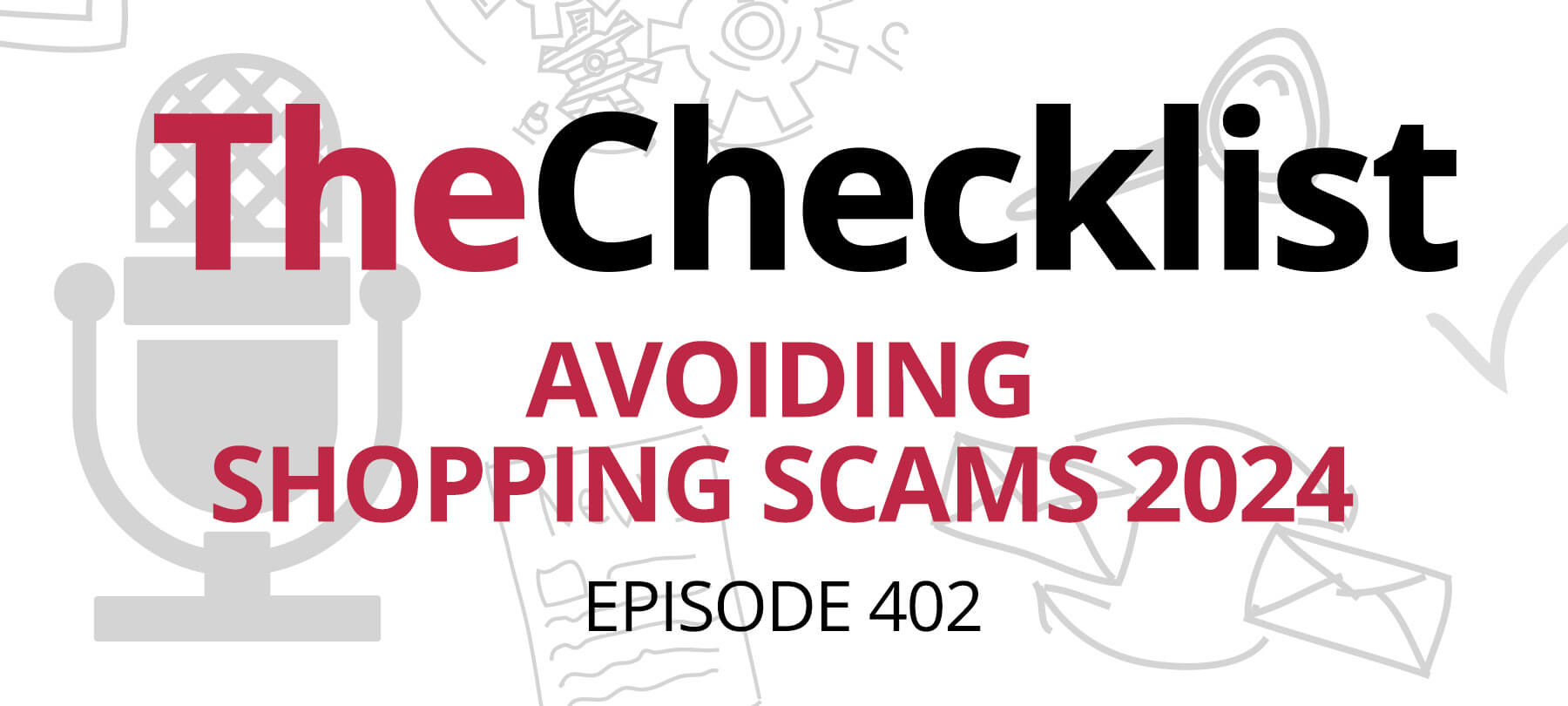On this week’s Checklist podcast:
- New tax scams in 2023
- Older tax scams still making the rounds
- Keeping safe during tax season
New tax season, new tax scams
Tax season brings tax scams—and year after year, scammers roll out a few new scams. This year, the IRS is warning of a rise in fraudulent reporting scams. The scams vary, but the common denominator is that bad actors are encouraging people to use false information in order to lower their tax liability and/or increase the amount of their refund.
Tactics include:
- Using tax software to fill out Form W-2, Wage and Tax Statement and make up “large income and withholding figures as well as the employer it is coming from.”
- Using Form 7202, Credits for Sick Leave and Family Leave for Certain Self-Employed Individuals to claim an unjustified tax credit.
- Making up household employees on Schedule H (Form 1040), Household Employment Taxes, in order to claim fake sick and family wages “paid” to fictitious employees.
At the risk of stating the obvious, lying to the IRS on your tax return is a very, very bad idea. As acting IRS Commissioner Doug O’Donnell says:
We are seeing signs this scam is increasing, and we worry that innocent taxpayers could be at risk of being tempted into falling into a trap that puts them at risk of financial and criminal penalties…
For taxpayers who have been misled into filing incorrect returns, the IRS suggests a couple of remediation options, including amending a filed tax return or getting help from a tax professional.
Tax scams from previous years
Scammers aren’t known for their work ethic. As such, they often take the well-trodden path and go with what’s been successful in the past—which is why it’s always a good idea to review popular tax scams from years gone by.
Here are a few of the most important ones to know about:
IRS phone scams and Taxpayer Advocate Service (TAS) scams: Scammers call taxpayers pretending to be from the IRS in an attempt to get money or sensitive information.
Phishing emails: Emails that offer help with refunds and returns, but are aimed at stealing money, accessing personal data, or infecting a victim with malware.
Ghost preparers: Fake tax “professionals” who pretend to do your taxes, but run away with the preparation fee…or your refund.
Debt relief scams: Dodgy companies pitching too-good-to-be-true tax settlement deals that are, in fact, too good to be true.
For a more in-depth explanation of these scams, and tips on how to deal with them, see Checklist 222: Avoiding Tax Scams.
How to stay safe in the 2023 tax season
Tax scams are scary, because there’s a lot at stake. They’re also confusing, because they’re so incredibly varied. But the good news is that there are three basic rules to follow in order to have a safer tax season:
Rule One: Understand how the IRS contacts taxpayers. This makes it easier to spot an IRS impersonation attempt. The IRS has a guide that’s worth reading in full: Understanding how the IRS contacts taxpayers: Avoiding scams and how to know it’s really the IRS reaching out. The highlights are that the IRS will never ask for personal or financial information by email, phone, or text; they’ll never leave threatening voice messages; they’ll never threaten taxpayers with immediate arrest; and they’ll never demand payment in the form of debit cards, gift cards, or cryptocurrency.
Rule Two: Vet your tax preparer. To avoid scam tax preparers—or incompetent ones—make sure you check their credentials first. The IRS maintains a helpful directory to assist you with this: Federal Tax Return Preparers with Credentials and Select Qualifications. You can also look up a tax preparer in one of the directories of professional organizations that many qualified tax professionals belong to. In addition, advocacy groups offer guides to spotting potential issues when seeking tax help. The AARP, for example, has a useful list of tax preparer red flags.
Rule Three: Watch for weird mail. An unexplained tax document in the mail—indicating that a stranger may have been filing taxes on your behalf—is a common sign of tax-related identity theft. If you find something like this in your mailbox, use the Taxpayer Guide to Identity Theft to find out what to do next.



